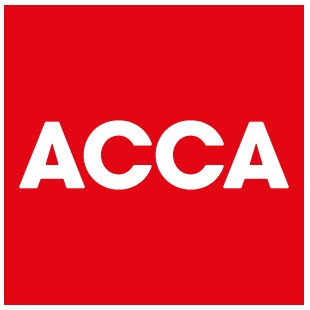In this interview, the dean of the Faculty of Economics and Business Administration at Vilnius University, Professor Aida Mačerinskienė shared her insights on various topics related to higher education, student careers, and the changing demands of the financial industry. She expressed her satisfaction with the university's partnership with ACCA, which offers students international-level programs and greater career opportunities.
1. University is cooperating with ACCA for a long time. Share your impressions of what students get because of our partnership and cooperation.
We are happy to have ACCA as partners which provides great opportunities for our students – to study at an international level program, have greater career opportunities, accelerated membership in ACCA. We are really proud to give such a possibility to our society, because studies are closely related to practical knowledge and international companies like ACCA for us are a direct investment in the student and his/her future.
2. Does the student's career correlate with the graduation grades? They say that the world is ruled by threesomes. How fair is this in 2022?
You know, according to your question, it would seem that only those who have studied successfully should become presidents, ministers or company CEO’s. Not really. There is no clear relationship between students’ career and their graduation grades. Usually, more motivated and initiative students are frontiers in such activities.
3. By virtue of your position, you are closest to employers who hire young professionals who have come out of your talent pool. What kind of feedback do you get? Is there something that should be emphasized by each student?
Employers hire our students as they are the best young people and by studying at Vilnius University they develop such abilities as critical thinking, systemic point of view, solving complex problems, creativity and many other skills which are most wanted by employers. We involve businesses in the development and improvement of study programs and aim to ensure that the graduating student meets the needs of businesses. On the other hand, sometimes companies want very specific knowledge, so certificates like yours ensure the level of competences and opportunities of students, and do not leave any gap for misunderstandings between the employer and the university.
4. The profession of a finance professional is rapidly changing. ACCA is doing everything possible to ensure that our graduates are ready for the new professional world. How fast do you think the requirements for specialists will be changing in the next 5 years?
Financial Managers are always in a Top 10 of carrier rankings. I don’t think it will change in the next 5 years. Anyway, this profession is constantly changing, because now they use complexity of IT solutions. Business processes are becoming more robotized, AI and other challenges push all business sectors to innovative decisions. But the fundamental and systemic knowledge will be essential for such specialists.
5. How do you see your mission during the recession of the global economy?
The recession of the global economy is a hard period for everyone. However, it is a normal phase of the economic cycle. I see the challenges of recession in the form of new opportunities. It is important for us, that such challenges would increase the elasticity of the country and would add the resilience of the people, which I wish for all of us in the future.
6. In your opinion, in 5-10 years, will there be higher education as such, or will students master only desired and necessary disciplines and immediately put them into practice?
It’s a difficult question. The Covid-19 pandemic showed us how vibrant a system of education must be. The last 20 years gave us a higher level of technologies and it changed a few generations. I believe in higher education, but it will go through some changes. University education will be simpler because we are already simplifying things so that more of them can fit in the minds of students. I think science will become more integrated, and based on modern technologies, helping everyone who wants to be able to understand, implement and, if necessary, change the existing reality.
In conclusion, the insights shared by Professor Aida Mačerinskienė, the dean of the Faculty of Economics and Business Administration at Vilnius University, shed light on the importance of partnerships between universities and international organizations like ACCA, the changing nature of finance professionals, and the role of higher education during challenging economic times. The professor emphasized the significance of practical knowledge, critical thinking, systemic point of view, and problem-solving skills for students to meet the needs of businesses. While the future of higher education may see changes, the fundamental and systemic knowledge will continue to be essential for specialists. Ultimately, the insights provided by Professor Mačerinskienė offer valuable guidance to both students and employers, highlighting the skills and knowledge that will be necessary for success in the rapidly changing professional world.



